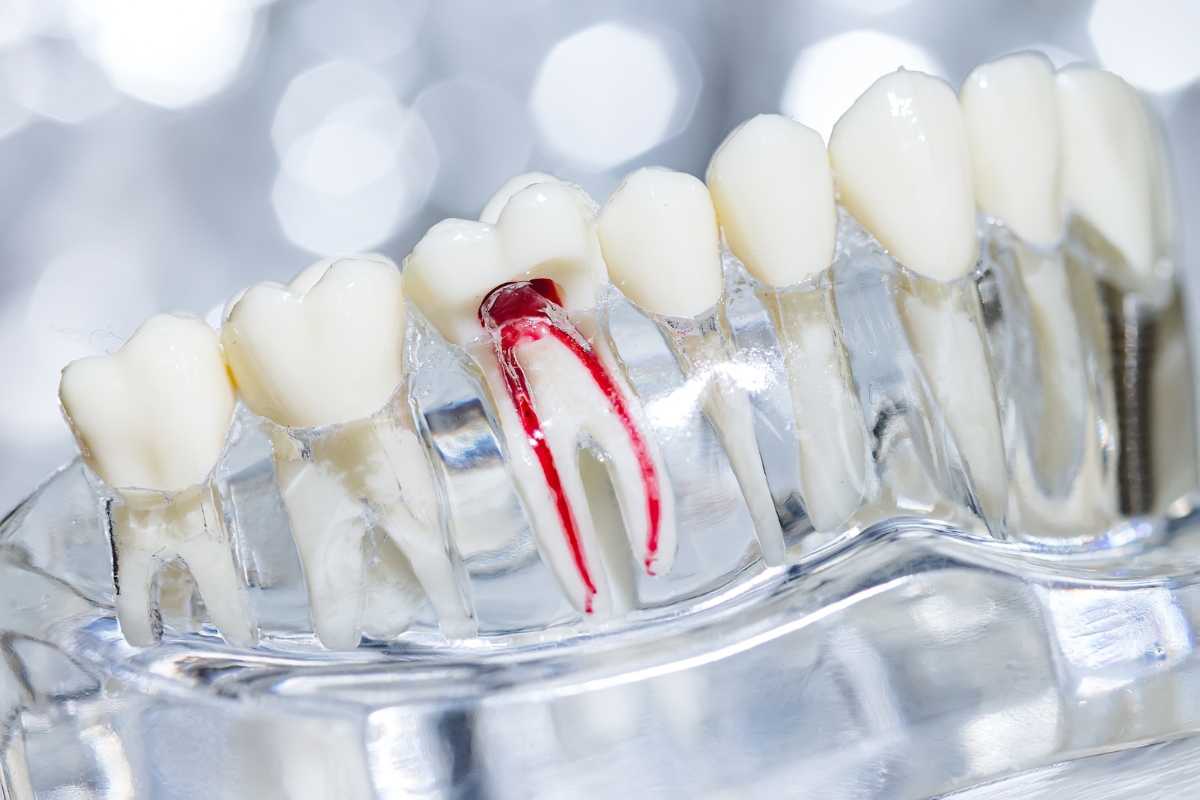New Patients Welcome!

Dealing with a tooth infection can be one of the most uncomfortable and painful experiences. The phrase “root canal” often follows when an infection gets severe. But what if you could treat a tooth infection without heading straight to that option? Yes, there are ways to address an infection naturally and even prevent it from escalating. Let’s dive into alternatives that may help you avoid a root canal.
What Causes a Tooth Infection?
Tooth infections, or abscesses, are usually caused by bacteria entering the tooth through cavities, cracks, or trauma. Once inside, the bacteria attack the pulp, leading to an infection. This can cause:
- Swelling and redness around the infected tooth
- Throbbing pain that may radiate to the jaw or ear
- Bad taste in the mouth due to pus draining from the abscess
If left untreated, the infection can spread, becoming more severe and possibly requiring a root canal to save the tooth. But is there a way to prevent it from getting that bad? Let’s explore.
Natural Remedies That Might Help
While professional dental care, such as root canals in Forest Hill, is always the best option, natural remedies might relieve or slow the infection’s progression. These are not cures but can serve as temporary measures while waiting for a dental appointment.
1. Saltwater Rinse
Saltwater is a simple yet effective way to combat bacteria and reduce inflammation. Swishing a warm saltwater solution in your mouth a few times daily can help clean the infected area and alleviate discomfort.
- Mix 1 teaspoon of salt in a cup of warm water.
- Swish the solution around your mouth for 30 seconds.
- Repeat this 2-3 times daily.
2. Garlic
Garlic has natural antibacterial properties, making it a great option to fight infections. It contains a compound called allicin, which has been shown to reduce bacteria.
- Crush a fresh garlic clove.
- Apply the paste directly to the infected tooth.
- Let it sit for about 10 minutes, then rinse with water.
Although garlic may cause a burning sensation, many swear by its effectiveness in reducing pain and infection.
3. Clove Oil
Clove oil is a well-known remedy for tooth pain due to its numbing properties. It also has antibacterial characteristics, which may help keep the infection from worsening.
- Dip a cotton ball in clove oil.
- Apply it to the affected area for immediate relief.
- Alternatively, you can chew on a clove directly.
4. Oregano Oil
Oregano oil has powerful antimicrobial properties, making it a potent weapon against infections. It can help kill bacteria and ease swelling around the infected tooth.
- Dilute a few drops of oregano oil with a carrier oil (like coconut or olive oil).
- Apply the mixture to the infected area.
- Repeat twice a day for best results.
When Should You Seek Professional Care?
While these remedies can provide temporary relief, it’s crucial to understand that they are not a substitute for professional dental care. A tooth infection can become a severe medical issue if not properly treated. Here are a few signs that indicate you should see a dentist immediately:
- The pain becomes unbearable or doesn’t improve after using home remedies.
- You notice a fever, which could signal the infection is spreading.
- Your face or jaw begins to swell, a sign of a more severe infection.
- You have difficulty breathing or swallowing, which indicates the infection has spread to deeper tissues.
If you experience any of these symptoms, consult a dentist immediately. The infection could spread to other areas if untreated, leading to more significant health problems.
Antibiotics: A Short-Term Solution
If the infection is caught early enough, your dentist may prescribe antibiotics as a first-line treatment to stop it. Antibiotics can prevent the infection from spreading while allowing time to evaluate the need for further treatment. However, this doesn’t cure the root issue, and if the infection persists, a root canal or extraction may still be necessary.
Can a Tooth Infection Be Prevented?
Preventing a tooth infection is the best approach to avoiding a root canal or more invasive procedures. Here are some tips to help keep your teeth healthy and infection-free:
- Maintain Proper Oral Hygiene: Brush twice daily and floss regularly to remove food particles and plaque.
- Regular Dental Visits: Visiting your dentist for routine check-ups can catch problems before they become serious.
- Avoid Sugary Foods and Drinks: Bacteria thrive on sugar, so reducing sugary treats helps prevent cavities and infections.
- Use a Fluoride Toothpaste: Fluoride strengthens tooth enamel and helps prevent decay.
Are Root Canals Always Necessary?
Contrary to popular belief, not every tooth infection automatically leads to a root canal. In some cases, if the infection is caught early and treated, the tooth may heal without requiring invasive procedures. However, once the infection reaches the tooth’s pulp and causes severe pain, the chances of needing a root canal increase.
If your dentist suggests a root canal, it’s typically because the infection has reached a critical stage. However, always ask about other treatment options before committing to any procedure. Your dentist might recommend draining the abscess or alternative treatments before using a root canal in Forest Hill.
Curing a tooth infection without a root canal is possible, but it requires vigilance and timely action. The natural remedies listed here can help manage symptoms but shouldn’t replace professional care. If you suspect you have a tooth infection, it’s essential to consult a dentist as soon as possible.
Staying proactive with dental hygiene, using preventive measures, and exploring early treatments may help you save your tooth and avoid the dreaded root canal. The best approach is always prevention, but knowing your options can make all the difference when issues arise.





